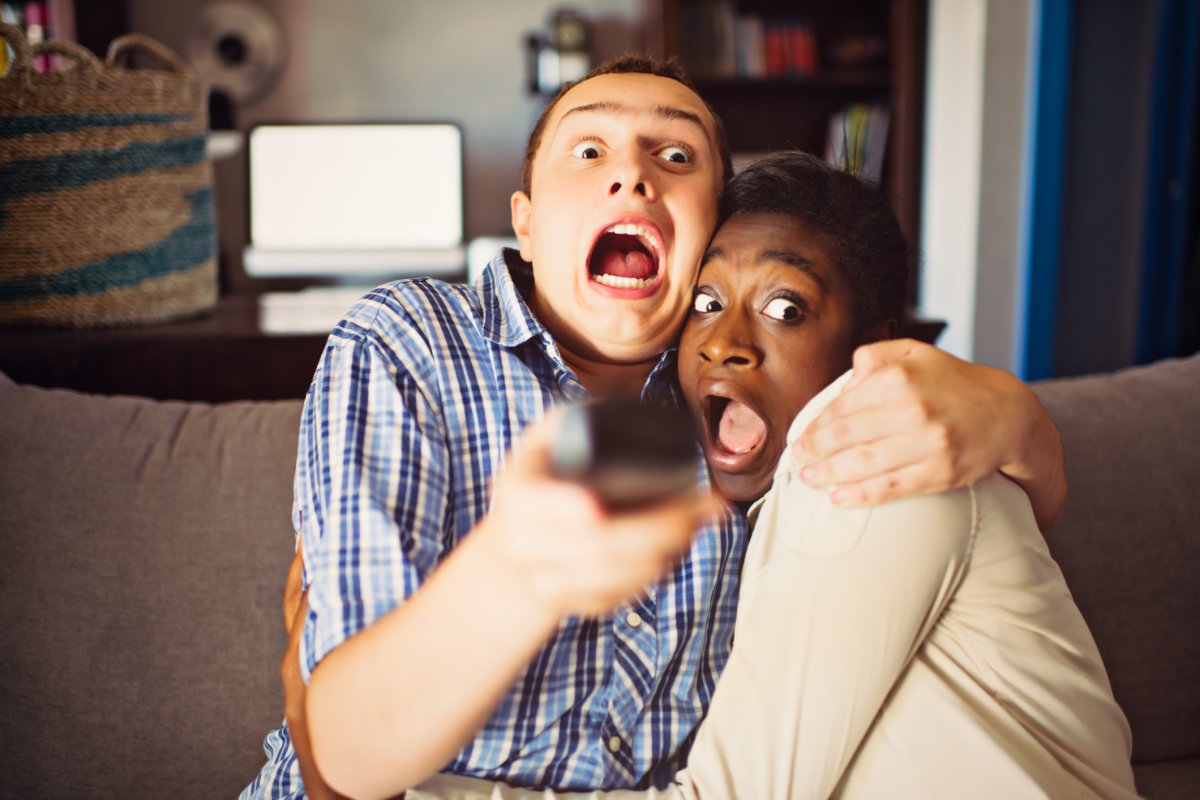Whether it’s an alien bursting out of a man’s chest cavity in Alien, a possessed Regan MacNeil bent over backward scurrying down the stairs in The Exorcist or the sound of Freddy Krueger’s knives against a metal railing, everyone has that one horror scene that curdles their blood.

While some simply can’t handle the feelings of fear that horror induces, others relish in it and can’t get enough.
And with Halloween not too far away, ‘tis the season for fright-seekers to get their scare on – and they can’t wait.
But what is it about being scared that appeals to people?
READ MORE: Halloween treats: Which goodies are less harmful to your teeth?
Well, first of all, it’s not just any type of fear that people find amusing, it’s a controlled type of fear, Steve Joordens, a psychology professor at the University of Toronto Scarborough, says.
This means that as long as we know we’re in a safe environment while watching or partaking in scary events, then that’s the type of fear we tend to like. If it’s a real-life situation that we have no control over (think a shooting scenario) then that’s a type of fear we don’t tend to like.
“None of us actually want to feel real fear,” he explains. “Real fear does have that overarching ‘I’m going to die’ and for most of us that can be extremely scary. So anyone who has been a part of a highly fearful situation would not generally walk away thinking it was fun.”
According to Joordens, the brain has two different modes: parasympathetic mode (which focuses on long-term survival, for example, digestion) and the sympathetic mode (which focuses on short-term survival).
Joordens explains that when people find themselves in a life or death situation, that’s when our brain switches to the latter.
“That’s what gets our hearts beating, breathing hard and generally our mouth goes dry because our digestive processes are stopping,” Joordens explains. “And it’s all about fight or flight, getting oxygen to the muscles and making the muscles ready. It quite literally is exciting and that is the basic fear reaction, and what humans seem to really like is flirting with that.”
But when it comes to that controlled sense of fear where we know our lives are not in danger, that’s the kind of spook we tend to like.
- Posters promoting ‘Steal From Loblaws Day’ are circulating. How did we get here?
- B.C. to ban drug use in all public places in major overhaul of decriminalization
- 3 women diagnosed with HIV after ‘vampire facials’ at unlicensed U.S. spa
- Canadian food banks are on the brink: ‘This is not a sustainable situation’
“The flirtation with fear is more when you can kind of put yourself in a situation where you get a version of those things happening but you’re always aware of the fact that there’s something – some sort of wall between you and the actual life or death situation,” Joordens says. “When you’re in a movie they’re always working things up, like something jumps out or there’s a lot of gore, but you always know that you’re watching a movie.”
So what that does is create those feelings – that activation of excitement that builds up in you, and you can’t wait to let it out, Joordens says.
“You can’t wait for that release,” he says. “So what makes these things fun is that when something scary finally happens, anybody who has that built-up tension tends to release it through laughter or screaming, but it’s ultimately safe and that’s what allows it to be fun.”
Yet not everyone likes those feelings and it all comes down to personality, Joordens says. But it’s tough to pinpoint which personalities will enjoy these feelings and which ones won’t, so it’s really up in the air.
READ MORE: Melania Trump’s inauguration outfit is now a ‘sexy’ Halloween costume
According to 2015 study out of Indiana University, researchers found that when people expose themselves to frightful media, they do so because they tend to like putting themselves in the scenarios they’re watching and enjoy the feeling of surviving the fake experiences.
‘I think we share fear experiences because it is something that connects us on a very primal level,” co-author Teresa Lynch said in a statement.
And lastly, the love of fear comes down to brain chemistry, specifically chemicals like dopamine.
While dopamine is responsible for the feelings of accomplishment, a 2008 study by the University of Michigan also found that it is linked to emotions like fear and dread.
But psychiatrist David Zald told Business Insider that people who tend to like scary things also have a difficult time regulating their brains’ dopamine release. So in a sense, their brains tend to soak up dopamine for a longer period of time, meaning they tend to get more out of the experience because they end up with higher levels of the chemical.
So there you have it fright seekers – the explanation for your love of horror comes down to you being a slave to your body’s chemicals and biology, just like a zombie, no?







Comments